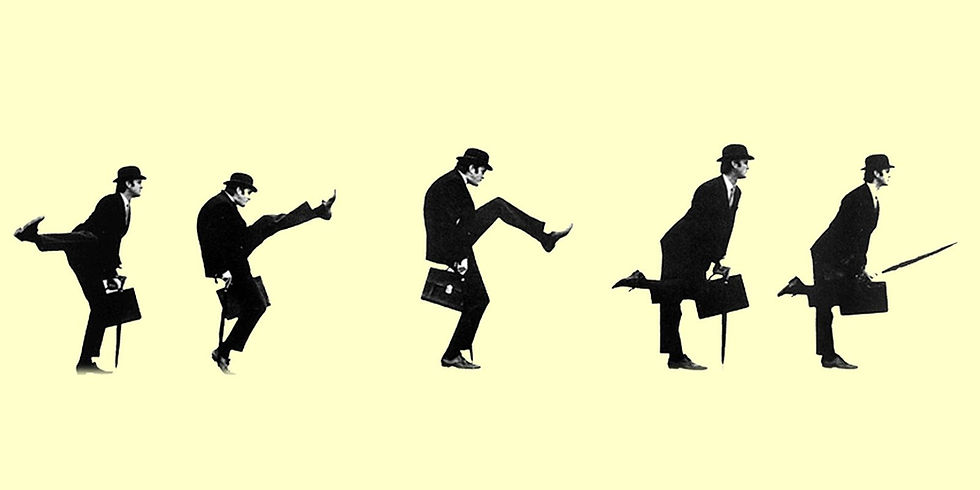Fossil fuels' funeral: Sir Jonathon Porritt
- Vincent Heeringa

- Apr 1, 2020
- 3 min read
As if Covid-19 isn’t enough, and as if the collapse in the oil price isn’t enough, the fossil fuel industry is about to get one massive spanking, says Sir Jonathon Porritt, leading environmentalist and sustainability advisor to Air New Zealand. Financial markets, once the great friends of oil, cars and coal, are shifting focus to renewables, recyclables and electric everything – meaning the fossil fuel industry is in danger of becoming as popular as a French kiss at the family reunion.
“I hope that this transition can be done smoothly. But we’re running out of time. I fear it will be far more disruptive than 2008 and 1987. It will involve the loss of trillions. But it will happen, if it hasn’t started already,” he says.
I spoke to Sir Jonathon in early March when he delivered a stunning address to the Institute of Directors in which he pointed to three early warning signs that the fossil fuel funeral is imminent. You can listen to my interview here and carry on reading to get the gist.

Porritt posed three “incredible” assertions – incredible because, right now, it’s hard to believe there’s an alternative to a fossil fuel-based economy that has worked so well for us since the 1890s. The first assertion is that by 2025 the value of all the major oil and gas companies will be halved, leading to a loss in the trillions of dollars. The second assertion is that this loss will have catastrophic consequences for financial markets reminiscent of other major financial shocks such as the 2008 GFC. Only worse.
The third is that this could be the best thing that has happened to the global economy since the industrial revolution.
Porritt, who is the founder of Forum for the Future and chair of Air New Zealand’s sustainability council, is a challenging and but also reassuring voice in the business community. Reassuring because he argues that market solutions and capitalism can be effective tools for addressing climate change and environmental destruction. He is, however, frustrated. He’s angry at the disinformation spread by the coal and oil companies (and especially Exxon) and the slow pace of change in capital markets to invest in greener technologies. The combination means that politicians do not feel pressure to make changes as fast or as far as they should be. We’ve lost two decades of emissions-reduction potential and the path to a zero-emissions economy will now be much more disruptive and destructive.
What’s Porritt’s evidence for this tipping point happening now? He points to three recent events that he calls “early warning signs”:
The downgrade of Exxon by Goldman Sachs to a ‘sell’ because Exxon represents a “risk to long-term return on capital employed targets”. The markets are waking up, says Porritt, to the reality that oil companies represent stranded assets.
A letter written to shareholders in January by Blackrock chairman Larry Fink stating that “we are on the edge of a fundamental reshaping of finance” driven by climate change. Blackrock is the world’s largest private investor, responsible for $6 trillion (yes that’s a T) in assets. “I think Fink is a hypocrite because so much of that money is still in fossil fuels, but even hypocrites can be right,” says Porritt.
Jim Cramer, the influential host of CNBC Mad Money host, said this month that oil companies are “in a death knell .. they are tobacco. And nobody wants them.”
Each of these is a relatively minor event on its own. But the change to a greener, non-fossil fuel economy will happen. The question is when, how and how disruptive it will be. Anyone’s who paying attention will notice that it has begun, says Porritt.
So, what can business do to prepare? Porritt challenged us all to listen to the advice of Greta Thunberg: bone up on the science of climate change. Read. Watch. Understand what’s happening. And ignore the junk science. The debate is over.
And then take responsibility. Identify the areas where your company is exposed to liability and to threats. And then turn those threats into opportunity. “don’t be like oil and coal stuck with obsolete assets – be like the Danish company Dong.”
Since 2000 Danish national oil and gas company, formerly known as Dong, has divested its oil assets and moved entirely into renewables. Now called Orsted, it’s the largest offshore wind farm owner and the majority supplier of electricity to Denmark. It’s share price has doubled. “If an oil company can do it, so can you,” says Porritt.




Comments